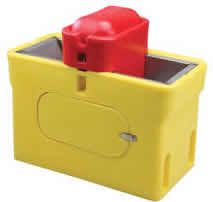
Water for Horse Boarding
A constant supply of clean fresh water for your horse is an essential element in good horse care. Your horse should always have water available in its stable and pasture. While traveling, dehydration is a concern, and on long trailer rides and during events or long trail rides, horses must be offered water frequently.
How Much Water Does a Horse Need?
The needs of individual horses will differ greatly. Things that affect the amount of water a horse needs are:- Air Temperature
- Work load
- Feed (grass vs dry fodder)
- Pregnant or nursing mare
- Size
- Health
Fresh clean water should be available to horses and ponies at all times. Insufficient water can contribute to poor health. Dehydration can be deadly. Lack of water can cause impactions leading to colic, especially during the winter months, when a horse's diet may consist almost solely of dry hay. Water can also carry bacteria or viruses that can make your horse sick.
How Can I Supply Water?
Buckets or automatic waterers can be used in stables. Automatic waterers are convenient, but it is difficult to monitor how much water your horse is drinking should you need to. Some horses won't know how to use them at first, or some won't like them because of the noise some waterers make. Buckets are easier to clean, but heavier to carry. They can spill unless safely secured.Winter Water Concerns
If you live in an area where the water can freeze, heaters will be needed. Trough heaters will prevent outdoor supplies from freezing and keep the water at a palatable temperature. Horses may not drink enough water if it is very cold. Ice should be cleared, and the water temperature well above freezing if you don't have heaters. Ice can be knocked from plastic pails with a rubber mallet, but it is time consuming and can result in the pail breaking. Hot water can be used to take the chill off of the cold water, but of course the effect is temporary.
In the pasture you may be able to rely on a natural water source such as a spring fed pond, or stream. Alternative water sources will be needed during freezing weather. The banks of ponds and streams should be safe for horses to get to the water. If the bank becomes too slippery the horses may not be able to safely approach or get out of the water. Unsafe water sources should be fenced off. A horse can not eat enough snow to provide adequate moisture.
Automatic systems whether they are indoors or out should be checked daily to be sure they are functioning and that they are not soiled. Cords of heated water buckets and trough heaters should be checked and secured so curious horses can not play with them.
How do I Keep the Water Supply Fresh?
Troughs or automatic waterers can be used outdoors. Troughs and waterers will need to be cleaned and refilled regularly. Leaves, chaff, insects, and other debris should be cleared out daily. Containers can be scrubbed out with a bristle brush and vinegar, then rinsed well. The frequency will depend on how clean the water stays and how quickly the algae grows. I find I clean my trough at least once a week during the hot summer months and less frequently during the colder weather.The water quality in natural sources may not be safe and should be monitored. Your local health unit or agricultural extension should be able to advise you on how to test the water for safety.
Approximate Water Consumption By Horse Weight
| Body Weight | Minimum | Average | Maximum |
| 900 lbs | 3 gal | 4.5 gal | 6 gal |
| 1200 lbs | 4 gal | 6 gal | 8 gal |
| 1500 lbs | 5 gal | 8 gal | 10 gal |
| Chart from Recommended Code of Practice for the Care and Handling of Farm Animals - Horses, Canadian Agri-Food Research Council, 1998 | |||
We currently use Ritchie Automatic Waterers.
30813 IRAN PATH, NORTHFIELD, MN 55057
PH: (952) 913-3222 EMAIL: DONAVIN@DAKOTASTABLES.COM